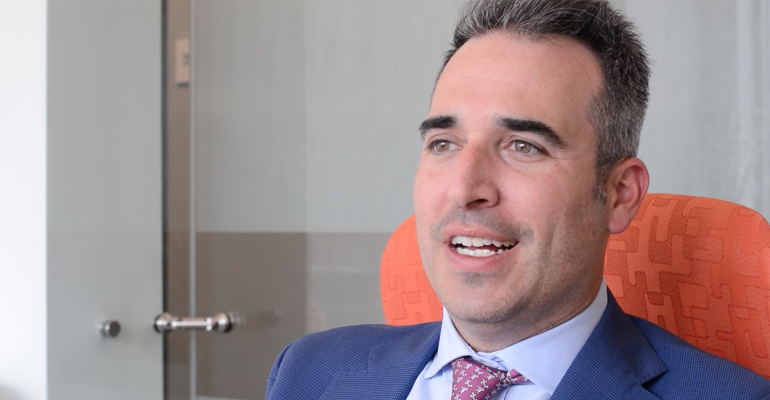In late 2019, Pathstone was a multi-family office and ultra-high-net worth wealth manager in northern New Jersey with $15 billion in AUA and large ambitions for a national presence.
According to President Matt Fleissig, to become a nationally recognized industry leader would require about $50 billion of assets, a particularly difficult feat to build outside of a traditional private bank or trust company in the rarefied air of the super wealthy. There is a shortage of qualified talent, he said, as clients need a broader array of services—delivered on a centralized platform—than most investment advisory firms in the retail space can provide.
Private equity firm Lovell Minnick, which has made investments in other fast-growing firms such as Mercer Advisors, First Allied Securities, H.D. Vest and Stein Roe Investment Counsel, believes Pathstone can crack that code; the investment firm, backed in part by a $35 million senior debt facility from New York Life’s Madison Capital Funding, invested in the firm one year ago.
Last month, Madison Capital was lead arranger on a further $76.3 million in funding for Lovell Minnick to help Pathstone grow its operations and make further acquisitions in the space.
“We were able to guide Pathstone toward an enhanced model of employee ownership to motivate, keep and attract top talent,” Lovell Minnick partner Brad Armstrong told WealthManagement.com last month. “Our M&A team drove transactions forward, while Pathstone could keep a focus on the client experience and enhance its technology offerings.”
Technology, Fleissig says, and a drive to automation of services is at the heart of Pathstone’s ability to stand out in the crowd amid private bankers like Goldman Sachs and the smattering of smaller family offices.
Its in-house, centralized tech system, ARROW, connects to a “matrix” of 500 services from tax planning and preparation, accounting and wealth preservation. ARROW gives each advisor and client a bird’s eye view of the total balance sheet with the performance of each investment tracked in real time, all under a single login.
That technology and service offering was the lure for drawing potential recruits to the firm. But there is a shortage of talent out there for qualified UHNW advisors, said Fleissig, because they need to come with a multidisciplinary background.
Pathstone recently combined its portfolio performance and accounting systems, and by year-end hopes to add automated performance reporting with financial statements, which Fleissig calls the “holy grail” for family offices, which typically lag behind other retail financial services firms when it comes to technology.
The average lead advisor at Pathstone manages $1 billion or more in assets on behalf of about 30 clients, said Fleissig, with an additional 45 junior advisors in supporting roles.
In order to attract that talent, Armstrong saw the need to first offer existing advisors not just an equity stake in the company as a carrot but inspire them to support the firm’s growth. “We wanted people to literally buy in to the company and the vision,” Fleissig added.
Pathstone’s equity sharing plan now provides a variety of ways for employees to build equity over time and participate alongside management as the business grows and appreciates in value.
This enabled Armstrong’s team, with over 100 acquisitions under its belt, to go out and seek new talent, or equity partners.
The team was able to source targets and handle the nuts and bolts of negotiations and deal structures. Over the past nine months, Pathstone acquired Cornerstone Advisors, of Bellevue, Wash., with $4 billion in AUA, and Price Wealth of Austin, Texas, with $1.4 billion in AUA, bringing the wealth manager to $22 billion in AUA.
Armstrong and Lovell Minnick were also able to help Pathstone land a couple of high-profile board members over the past year such as Ron Cordes, the former CEO of AssetMark who brought with him significant ESG and impact investing insights, and the former head of Pershing, Mark Tibergien.





